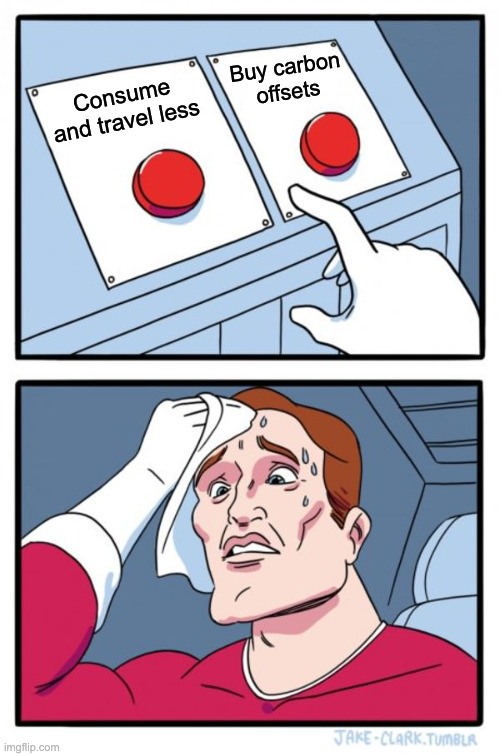After this intensely climate-change summer and the Sixth UN IPCC report giving us our final reminder take climate action now, hopefully many of us are deeply considering changes we can make to reduce our contributions to climate change. Let’s start with facts: In North America and other industrialized countries it’s impossible to have a no-carbon lifestyle AND of course, the more you buy and have shipped to you, what you eat and where it’s from, and the more you move yourself around the world, the more carbon dioxide you generate.
Since greenhouse gas emissions are some of the key drivers of climate change, many of us are looking to reduce our carbon footprint, the amount of carbon emissions we are responsible for, as the way to reduce our impact. So, how do you get at reducing your personal greenhouse gas impact without getting overwhelmed?
Step one is to understand your total carbon footprint – check out the Nature Conservancy’s calculator. I learned my household uses 38 tons of C02/year and somehow we’re doing better than ¼ people? Scary since apparently we’re supposed to get to 2-4 tons per person by 2050. Fun fact: if you run a business, you might also want to understand your business’s carbon footprint, too. Just a few initial questions: Are people flying to your events, using electricity to engage with your services, are you mailing products around, and how much server storage space are you using across all your content?
Step two is to figure out how you can reduce the consumption part of your footprint! One way to do this is to manage your everyday spending towards reducing your impact. You do not have to maintain the world’s most intense spreadsheet to keep track of your carbon: tools like Commons help you sum up your carbon footprint AND figure out what is most impactful to change. The Commons offers insights, nudges, and a carbon offset purchase option.
Carbon offset wha?!? Meet Step three: Carbon Offset Credits. Also known as “carbon credits” or “offset credits,” these are instruments one can purchase, which are creating net reductions in greenhouse gasses and credit that reduction to the purchaser, says CarbonOffsetGuide.org.
Since it is nigh impossible to have no carbon footprint, an additional mitigation tactic some people take is to offset some of their carbon usage, taking the cue from organizations who are already doing this. These could be natural [plant a tree, grow oysters] or engineered [solar, chemicals] technologies. These then store [sequester] carbon, or generate cleaner energy, thereby offsetting the carbon your consumer lifestyle creates.
The two main problems with carbon offsets are:
- 1 / no incentive to change behavior, just spend more money to “fix” it while you continue to dump crap in the atmosphere.
- 2 / Up to 75% of the offsets are themselves crap, and don’t really even net out to zero impact, so buyer beware.
That said, if you want to supercharge your ability to reduce your impact today, a functional offset is currently the way to go. Commons* has an interesting approach to ensure their offsets are valid, and there are lots of companies that are invested in making their offsets valid and valuable – including creating standards for offsets so you can buy ones that matter – read a list of those, here.
Your todo: Offset, with intention
We’ve long heard adaption as our key tool – reduce, reuse, recycle. The new kid in town is mitigation: doing what we need to, given the damage already done to the world. When we offset with mitigation in mind, we can do some good and reduce our impact.
In a perfect world, we would have plentiful carbon-neutral food, travel, and goods options already – without them having to rely on offset credits. However, we do not yet. Offsets are one way people bridge the gap. They are one part of a strategic approach to:
- Individuals to balance and reduce personal carbon footprint
- Businesses to booth reduce business carbon footprint and to help customers also be able to reduce carbon footprint
Putting aside the fact that large companies and federal organizations like the US Military emit the majority of greenhouse gasses, individuals do also contribute and there are levers within our control – our consumption, and increasingly, our willingness to offset our lifestyles. So, which will you we try?

* they are not sponsoring this post [I have no sponsors!] I simply think what they are doing is thoughtful and worth sharing <3